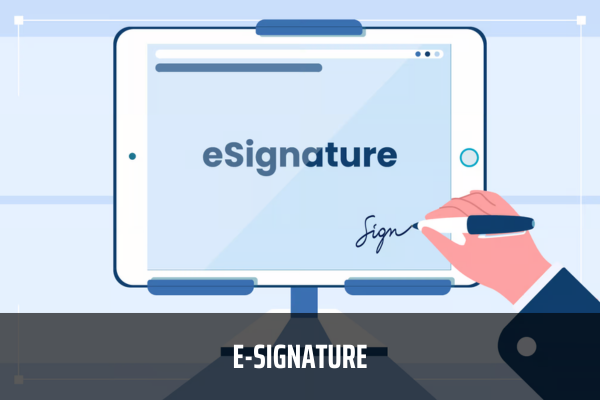Are e-signature secured? What are the obligations of the party accepting e-signatures before accepting e-signatures in Vietnam?
Vietnam: Are e-signature secured?
Pursuant to Article 21 of the Law on E-Transactions 2005, regulations on e-signature are as follows:
E-signatures
1. An e-signature is established in the form of words, letters, numerals, symbols, sounds or other forms by electronic means, logically attached or associated with a data message and capable of certifying the person who has signed the data message as well as the approval of such person to the content of the signed data message.
2. An e-signature shall be considered secured if it satisfies the conditions stipulated in Clause 1, Article 22 of this Law.
3. E-signatures may be certified by e-signature certification service providing organizations.
Thus, an e-signature shall be considered secured if it satisfies the conditions stipulated in Clause 1, Article 22 of this Law.
Pursuant to Clause 1 Article 22 of the Law on E-Transactions 2005 on conditions to ensure security of e-signatures:
Conditions to ensure security of e-signatures
1. An e-signature is considered secured if it is verified by a security verifying process agreed upon by transacting parties and satisfying the following conditions:
a) E-signature creation data are attached only to the signatory in the context that such data are used;
b) E-signature creation data are under the control of only the signatory at the time of signing;
c) All changes to the e-signature after the time of signing are detectable;
d) All changes to the contents of the data message after the time of signing are detectable.
2. E-signatures certified by e-signature certification service-providing organizations shall be considered having satisfied the security conditions mentioned in Clause 1 of this Article.
Therefore, an e-signature is considered secured if it is verified by a security verifying process agreed upon by transacting parties and satisfying the conditions.
Conditions to ensure security of e-signatures include:
(1) E-signature creation data are attached only to the signatory in the context that such data are used;
(2) E-signature creation data are under the control of only the signatory at the time of signing;
(3) All changes to the e-signature after the time of signing are detectable;
(4) All changes to the contents of the data message after the time of signing are detectable.

Are e-signature secured? What are the obligations of the party accepting e-signatures before accepting e-signatures in Vietnam? (Image from the Internet)
Do parties to a transaction have rights to reach agreement to use or not to use the certified e-signature in Vietnam?
Pursuant to Article 23 of the Law on E-Transactions 2005 on principles of using e-signatures:
Principles of using e-signatures
1. Unless otherwise provided for by law, the parties to a transaction have rights to reach agreement:
a) To use or not to use e-signatures to sign data message in the transaction process;
b) To use or not to use the certified e-signature;
c) To select an e-signature certification service-providing organization in cases where there is an agreement on the use of the certified e-signature.
2. E-signatures of state agencies must be certified by e-signature certification service providing organizations defined by competent state agencies.
Unless otherwise provided for by law, the parties to a transaction have rights to reach agreement:
(1) To use or not to use e-signatures to sign data message in the transaction process;
(2) To use or not to use the certified e-signature;
(3) To select an e-signature certification service-providing organization in cases where there is an agreement on the use of the certified e-signature.
Therefore, unless otherwise provided for by law, the parties to a transaction have rights to reach agreement to use or not to use the certified e-signature.
Note: E-signatures of state agencies must be certified by e-signature certification service providing organizations defined by competent state agencies.
What are the obligations of the party accepting e-signatures before accepting e-signatures in Vietnam?
Pursuant to Article 26 of the Law on E-Transactions 2005 on obligations of the party accepting e-signatures:
Obligations of the party accepting e-signatures
1. A party accepting e-signatures is the one that has implemented the contents in the received data messages based on the reliability of such e-signatures and e-certificates of the sender.
2. A party accepting e-signatures shall have the following obligations:
a) To take necessary measures to verify the reliability of an e-signature before accepting it;
b) To take necessary measures to verify legal validity of an e-certificate and limitations with respect to the e-certificate in case such e-certificate is used to certify an e-signature.
3. The party accepting e-signatures shall take responsibility before law for consequences of non-compliance with the provisions of Clause 2 of this Article.
Therefore, a party accepting e-signatures shall have the obligation to take necessary measures to verify the reliability of an e-signature before accepting it.
LawNet